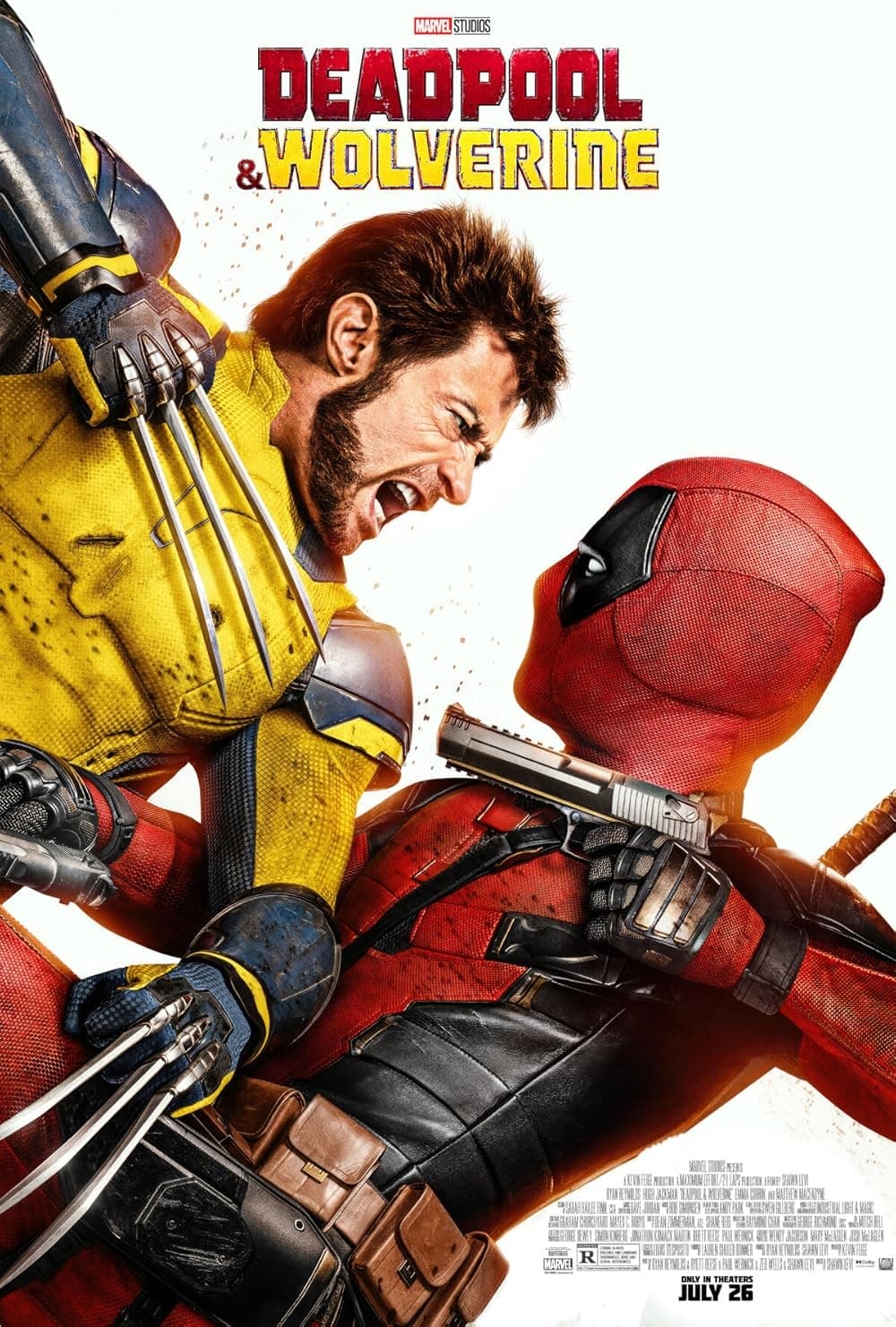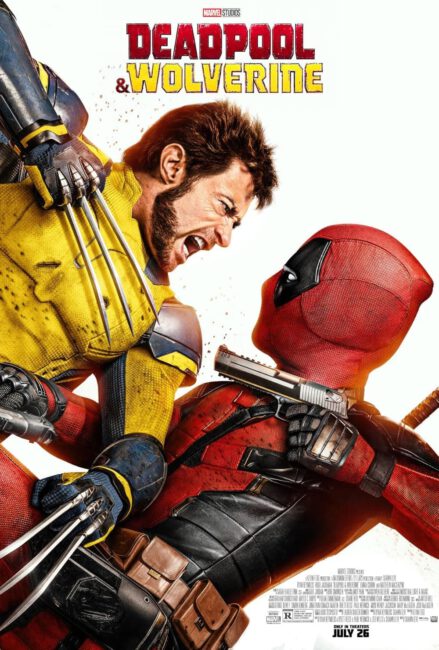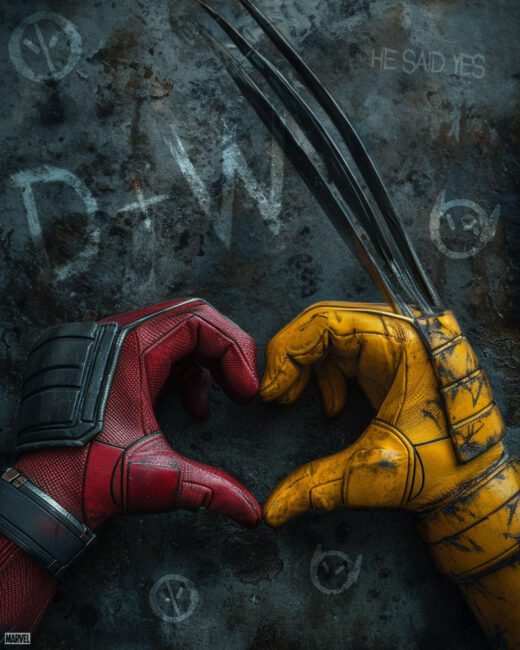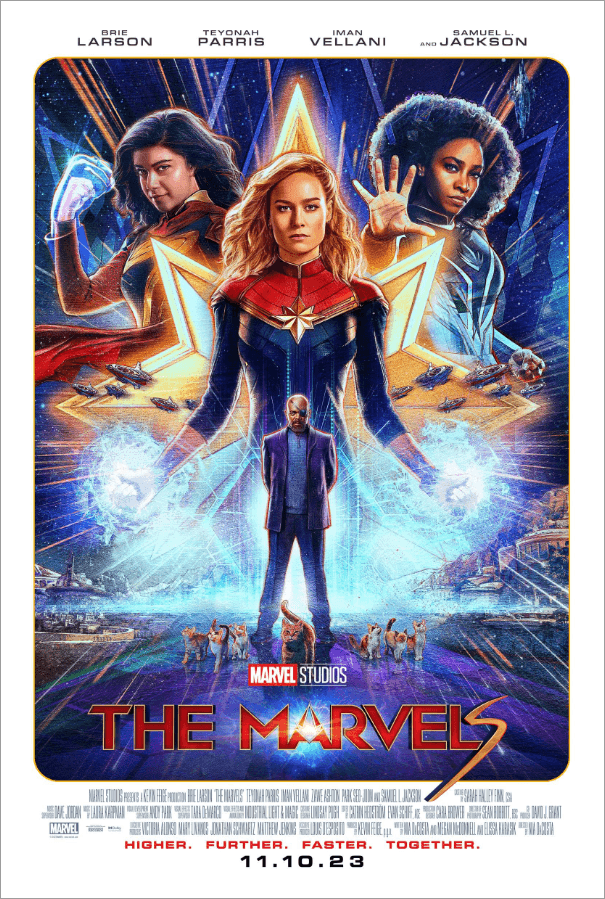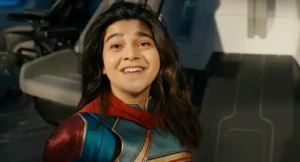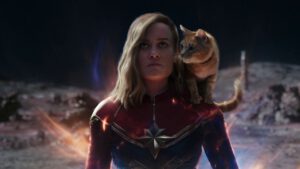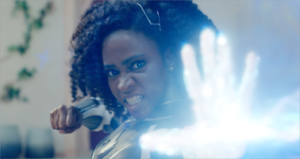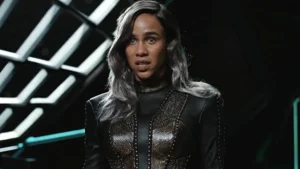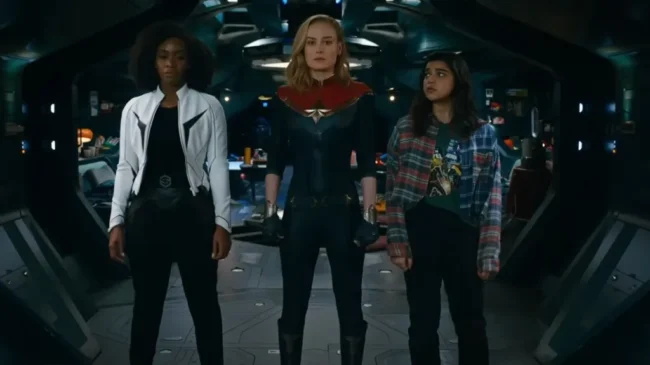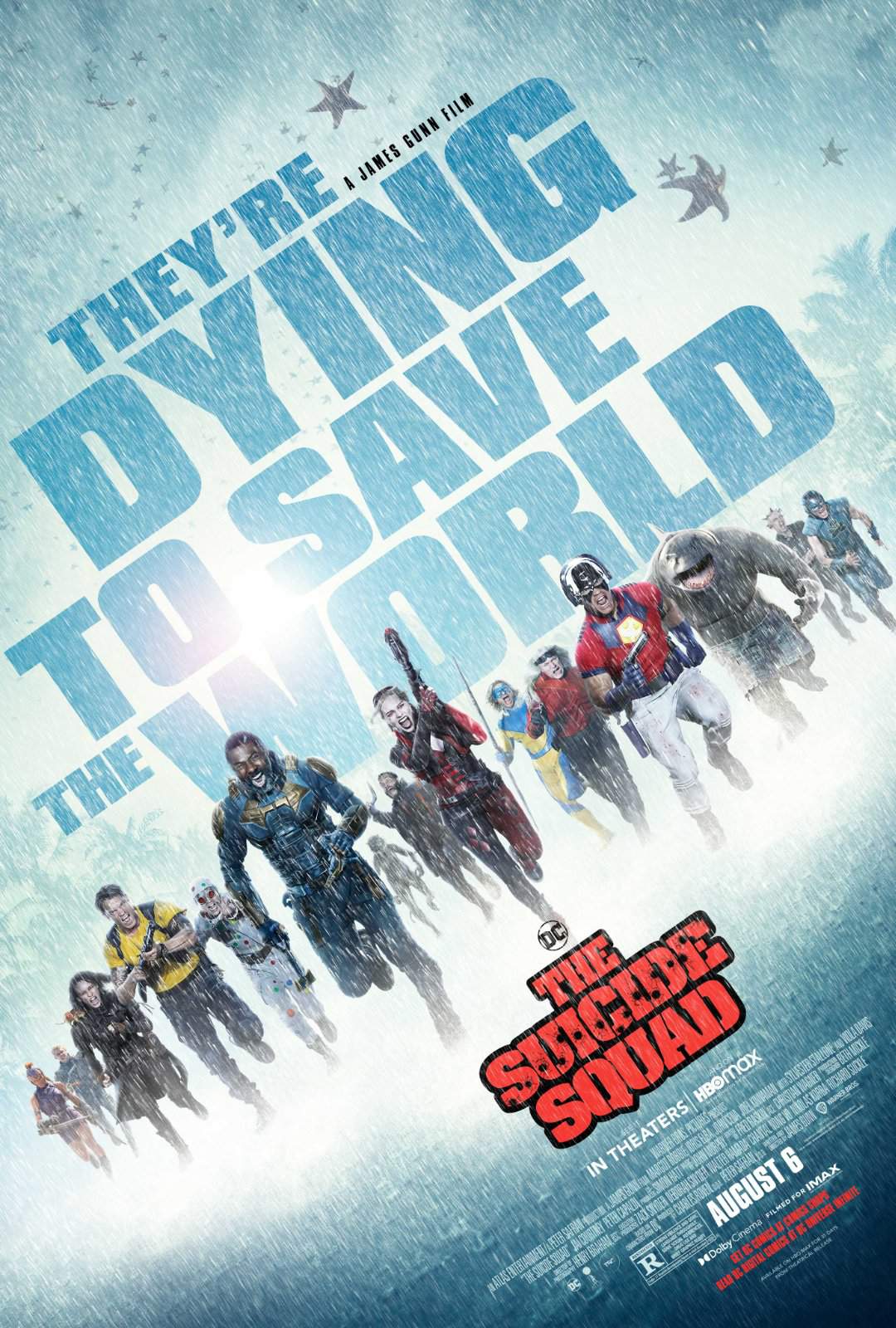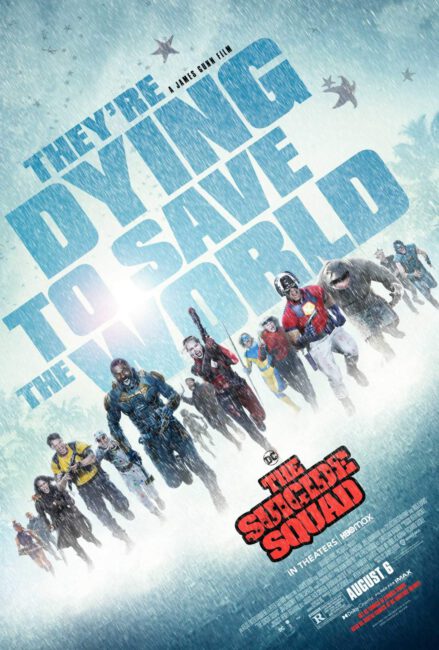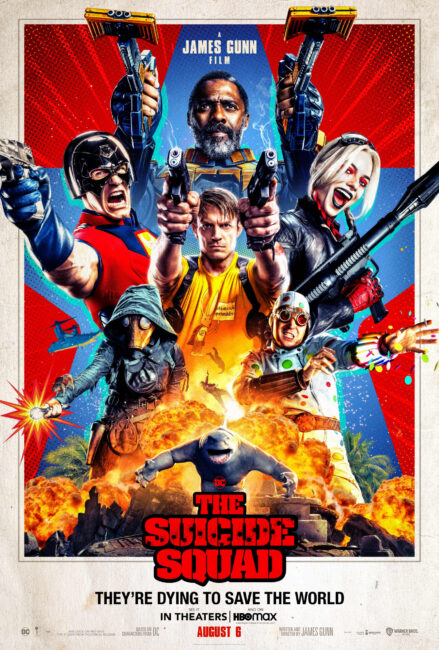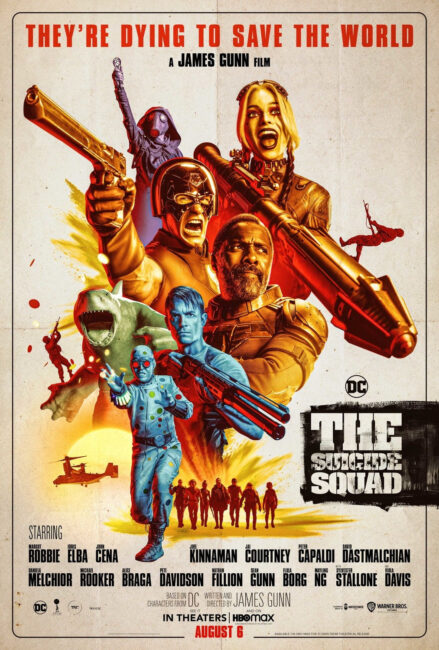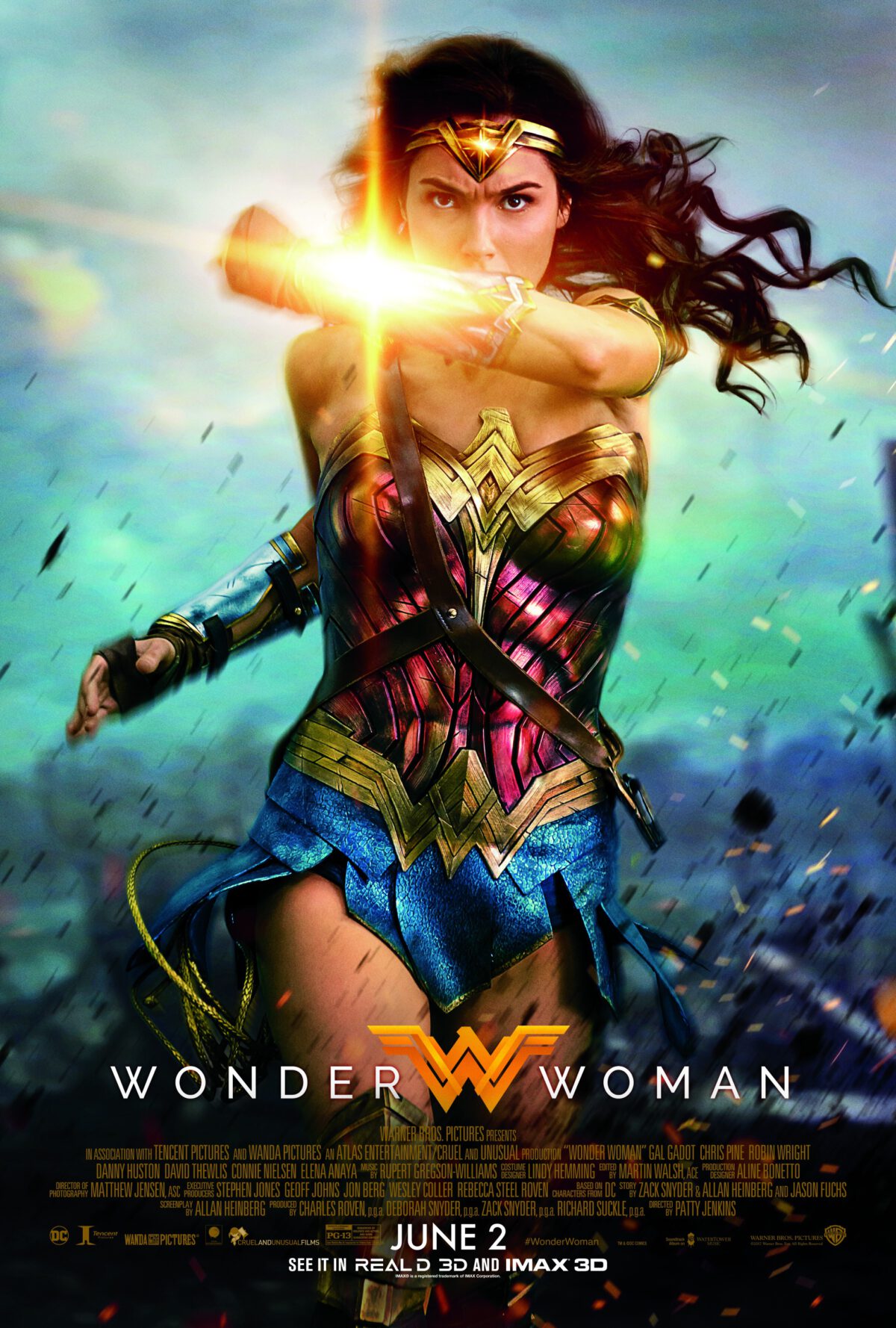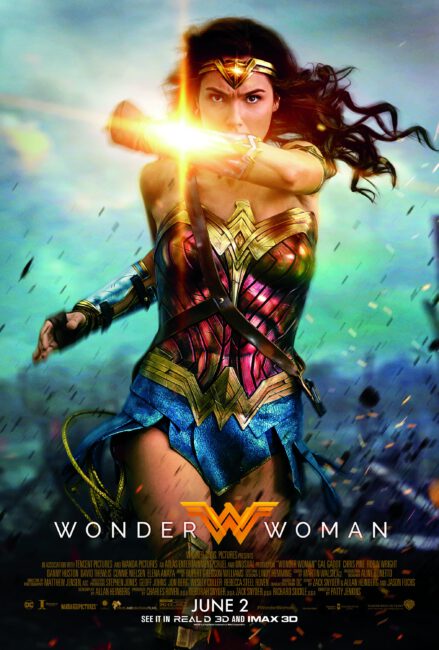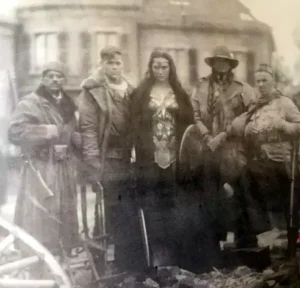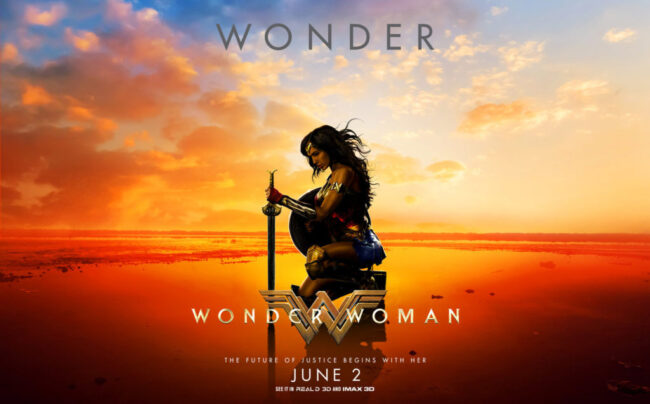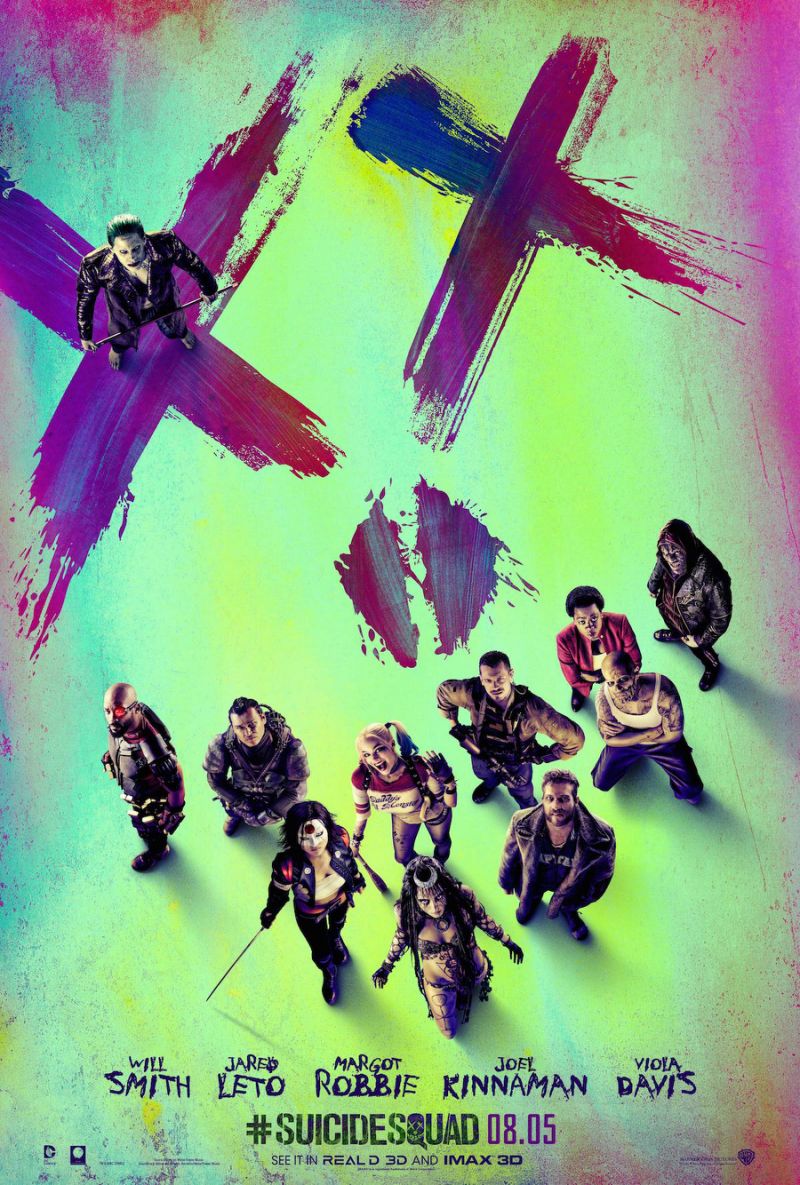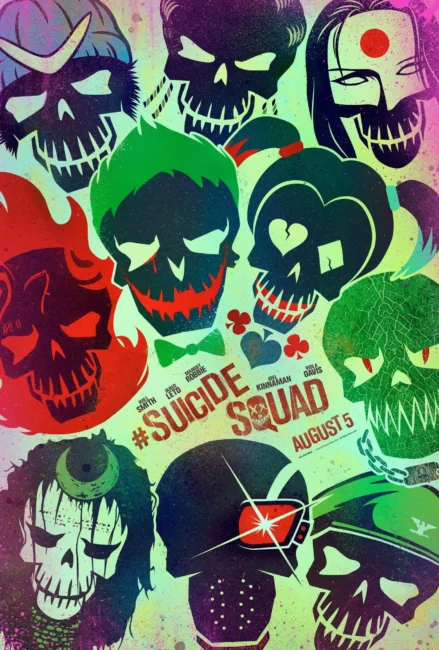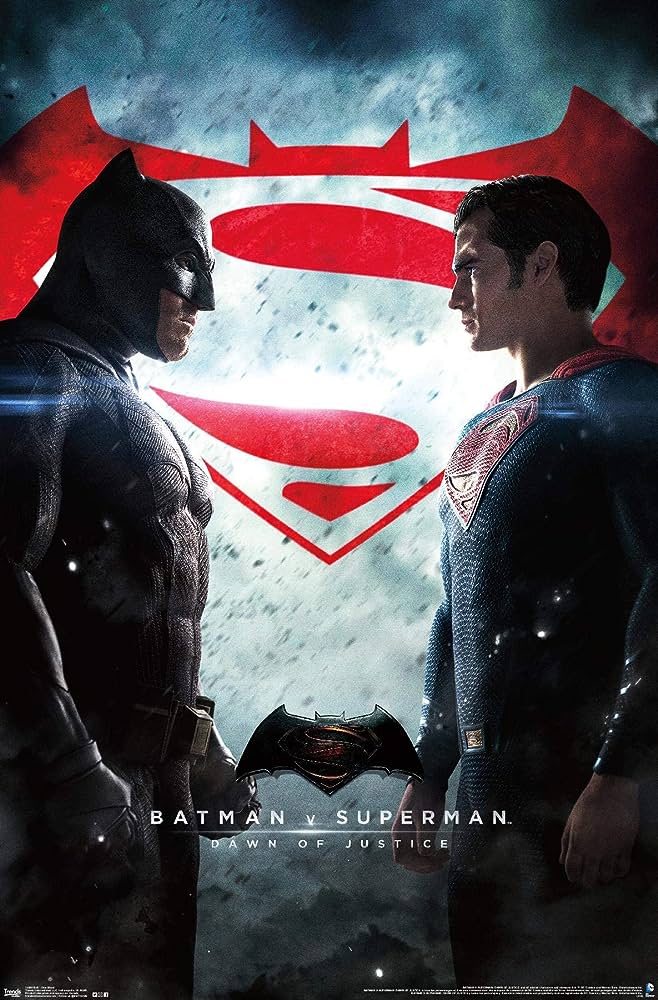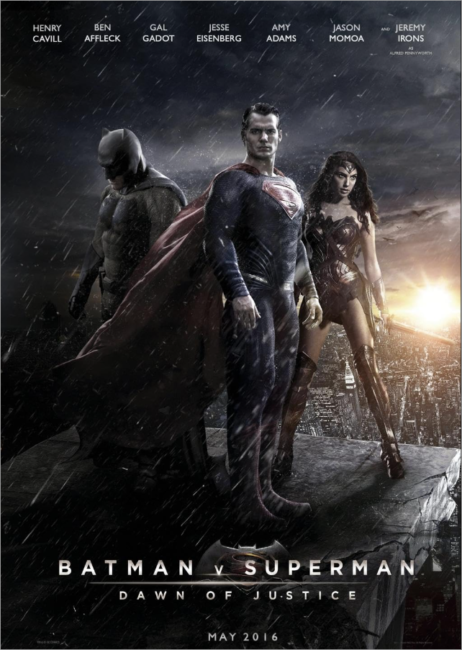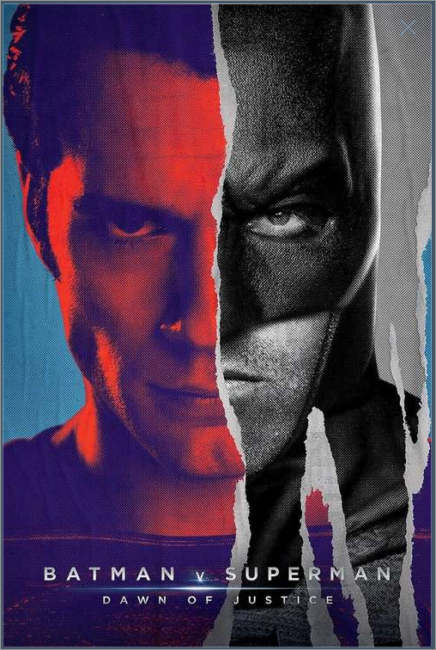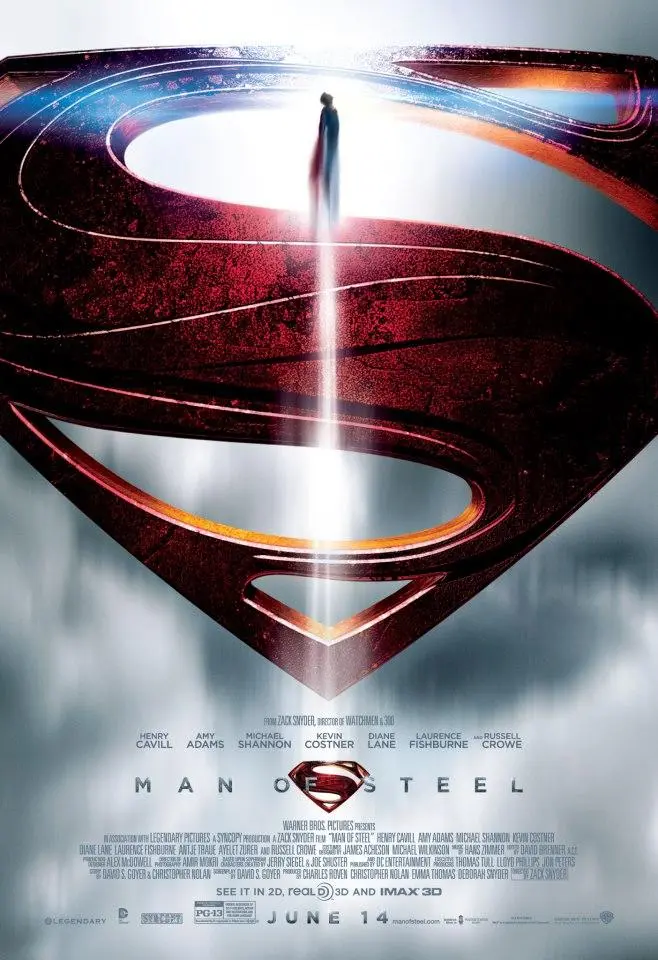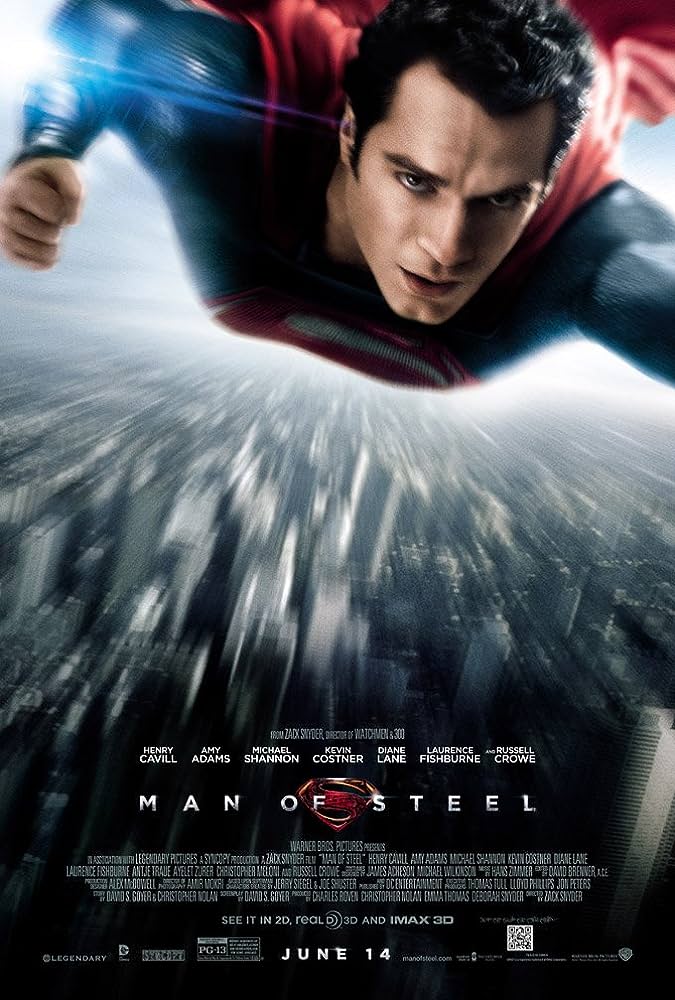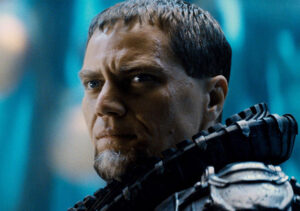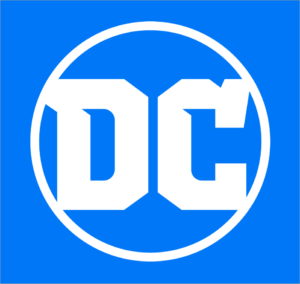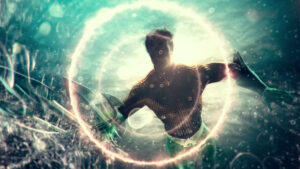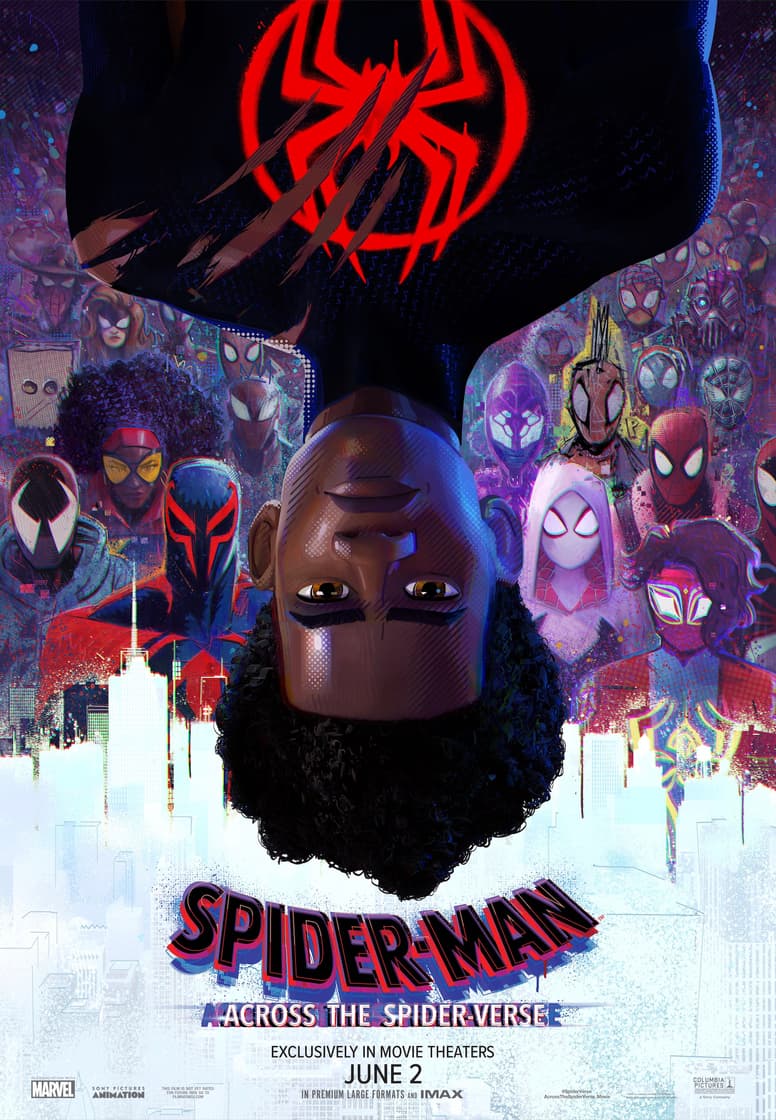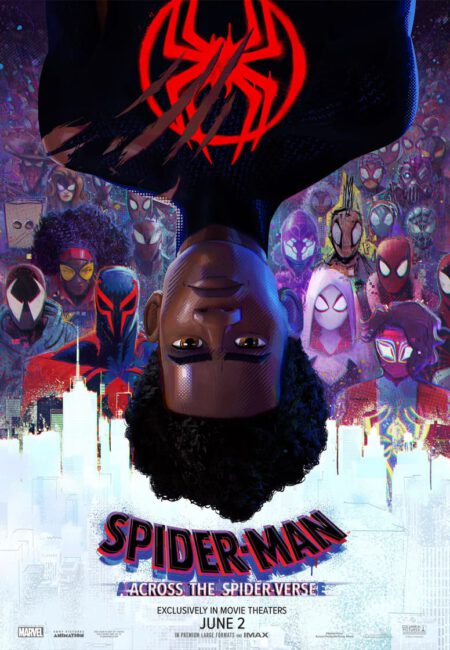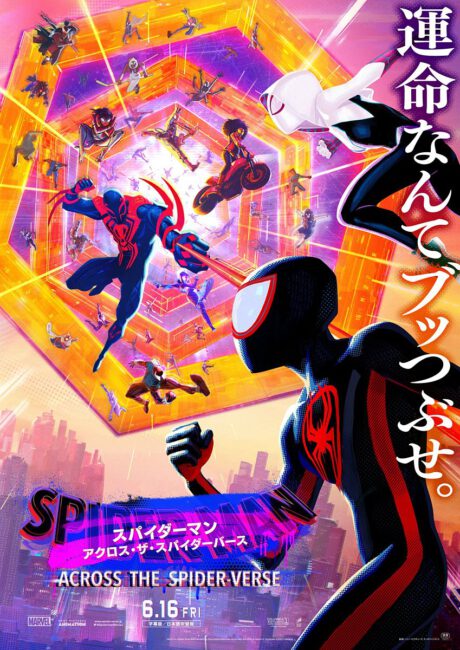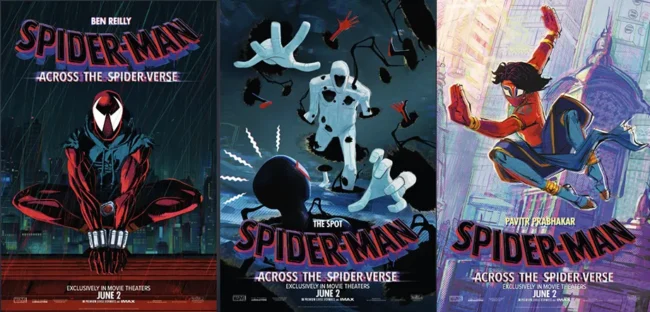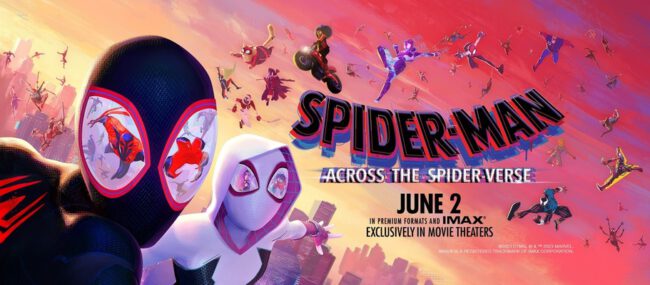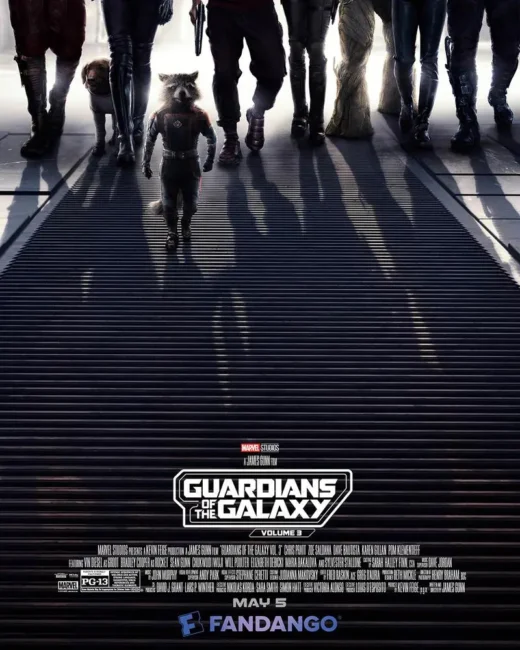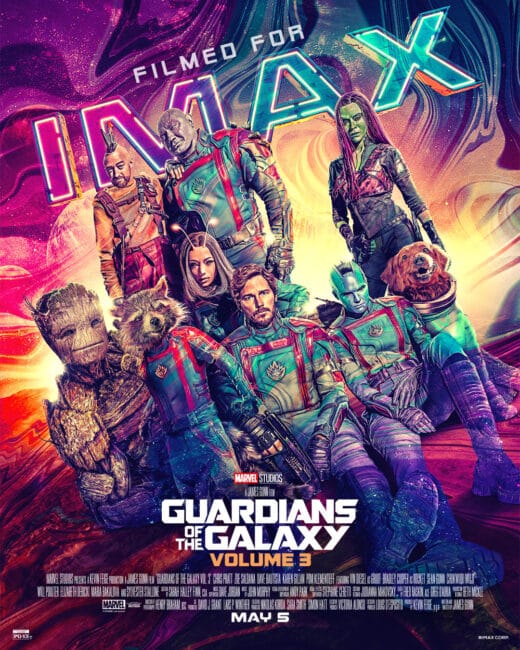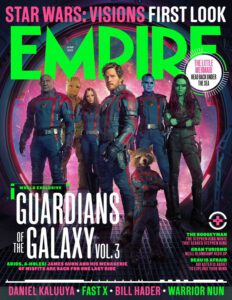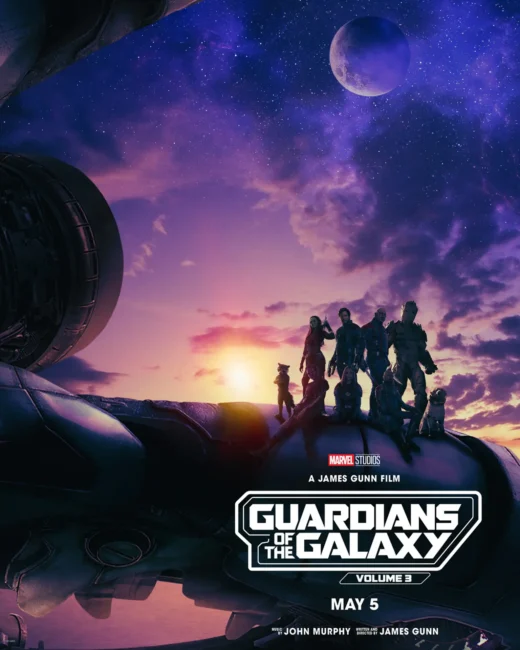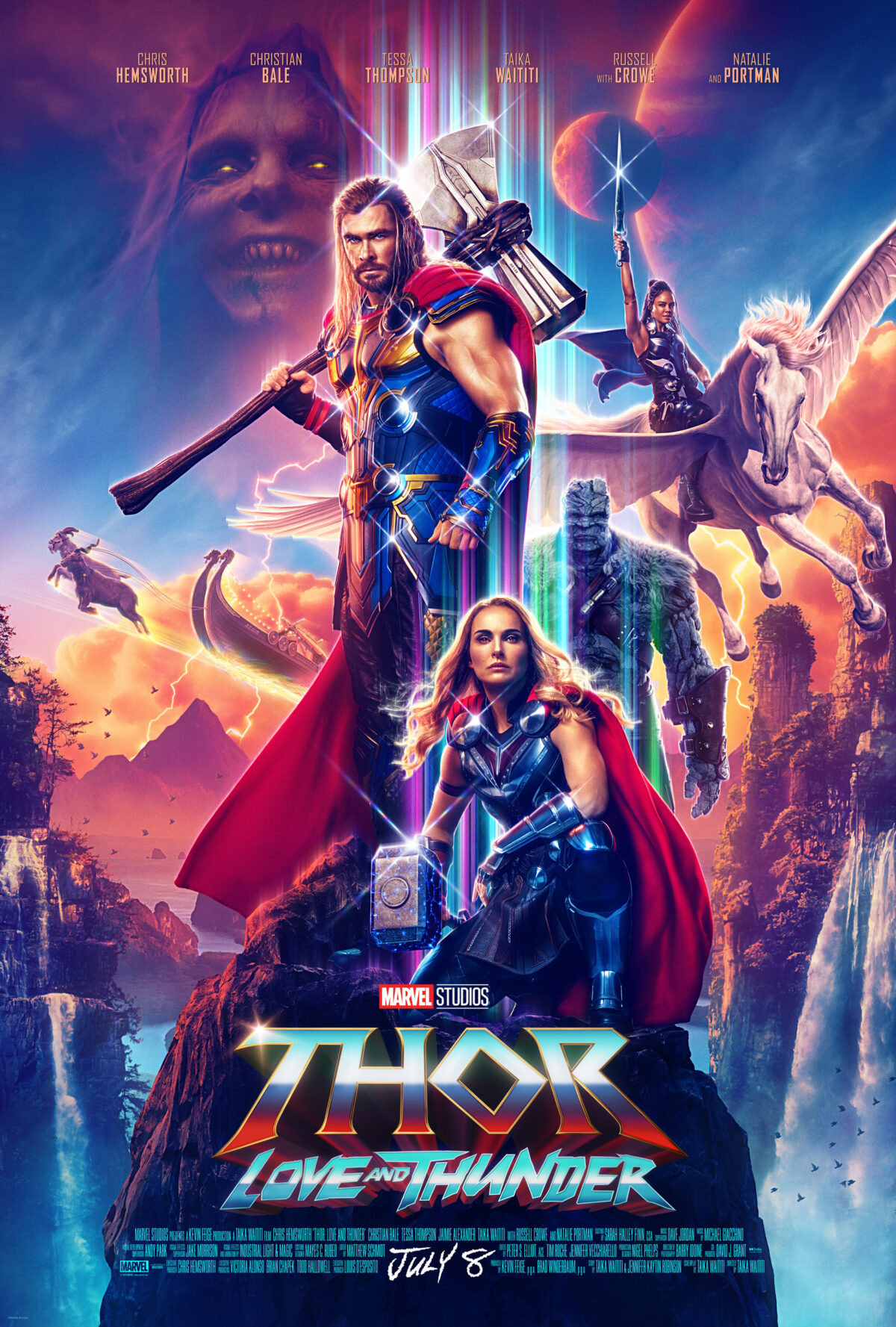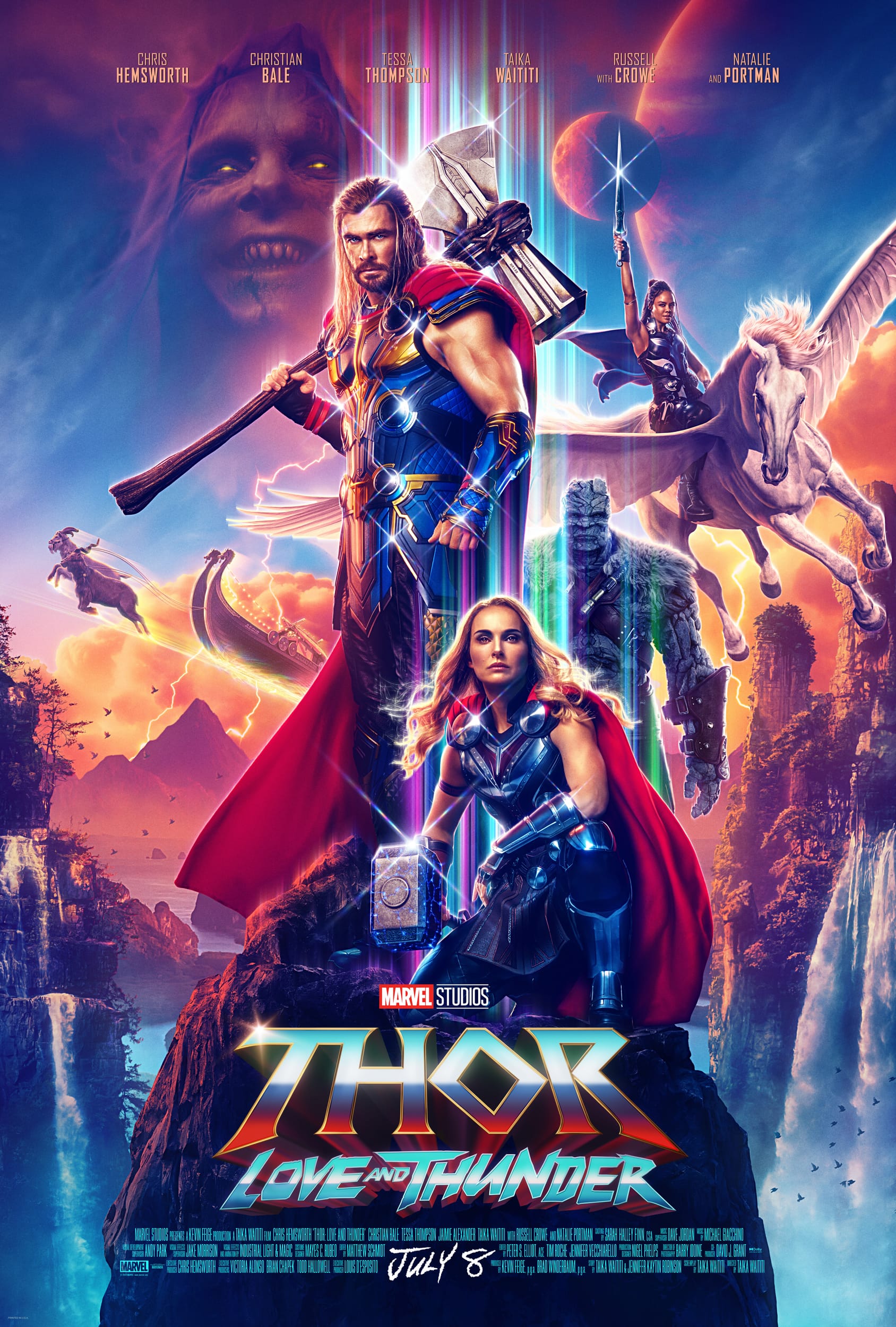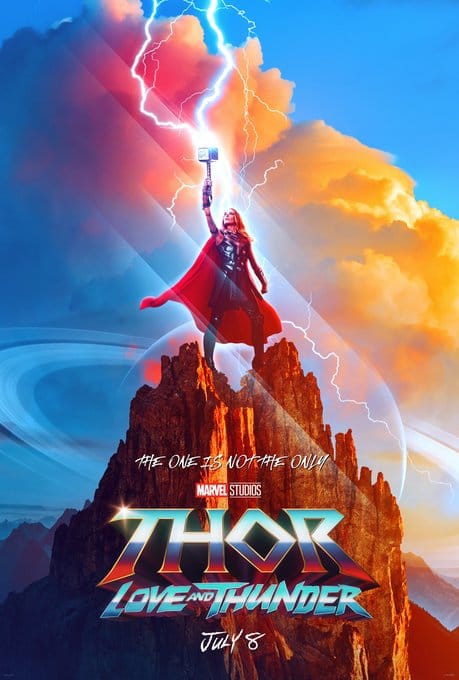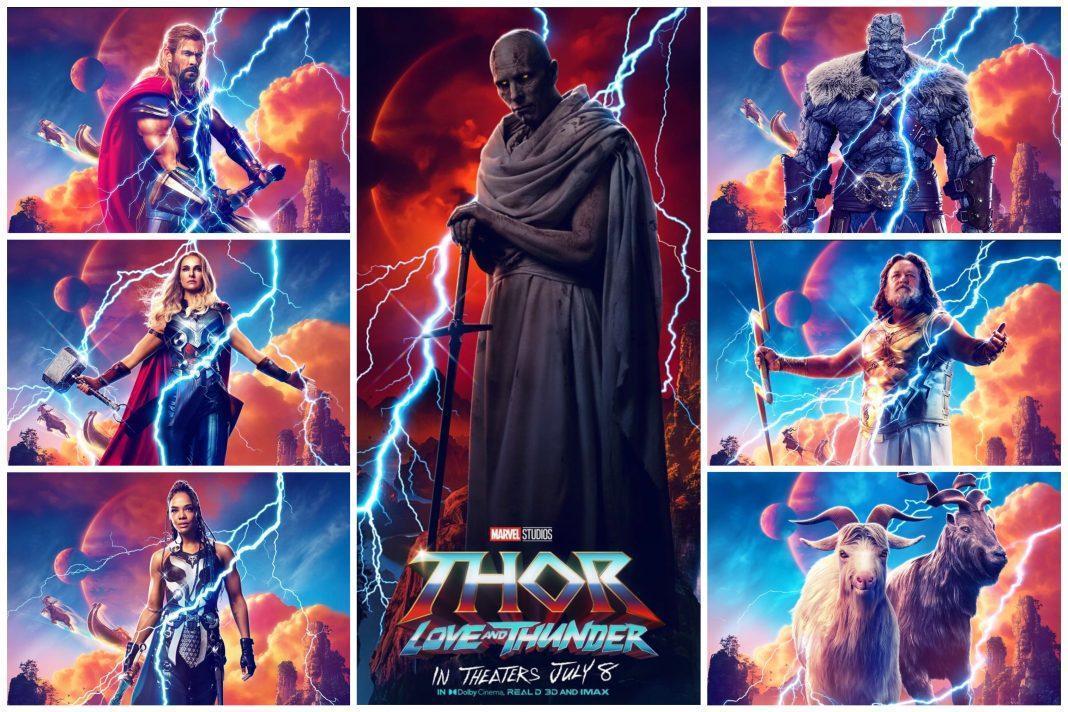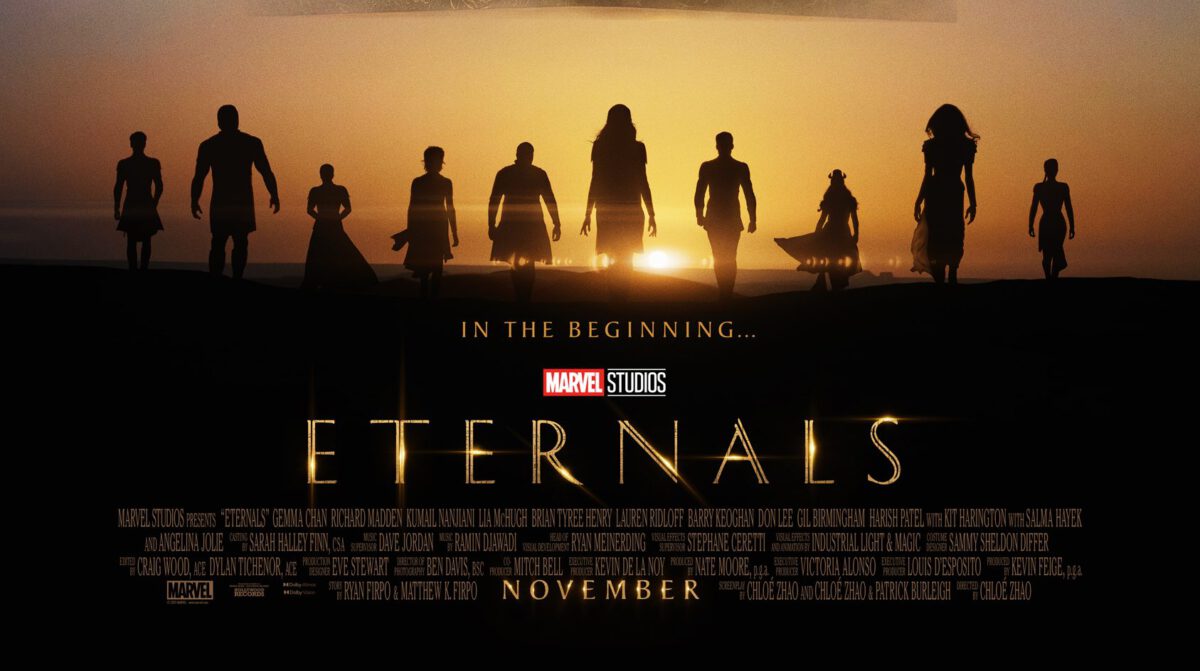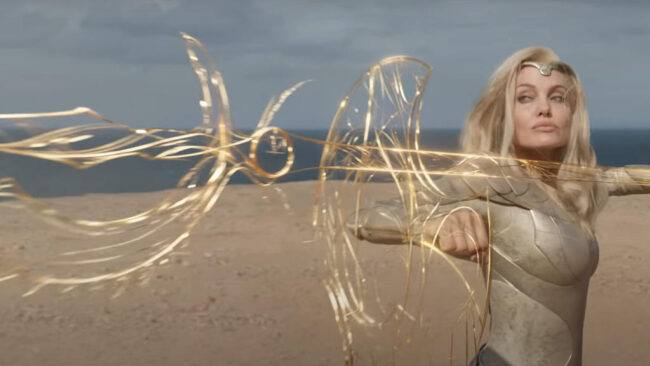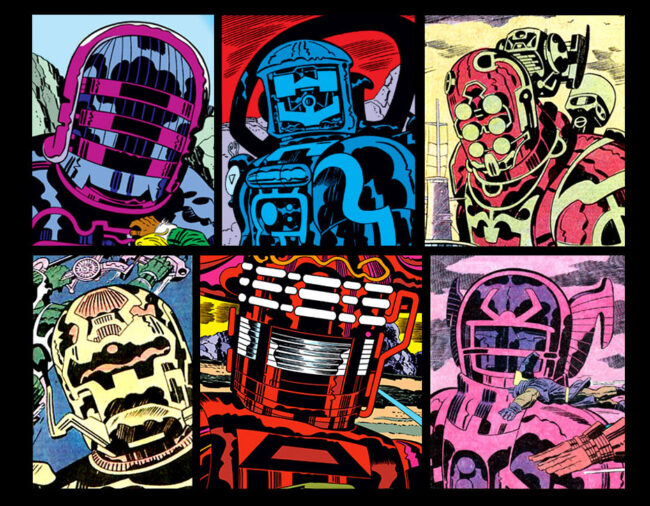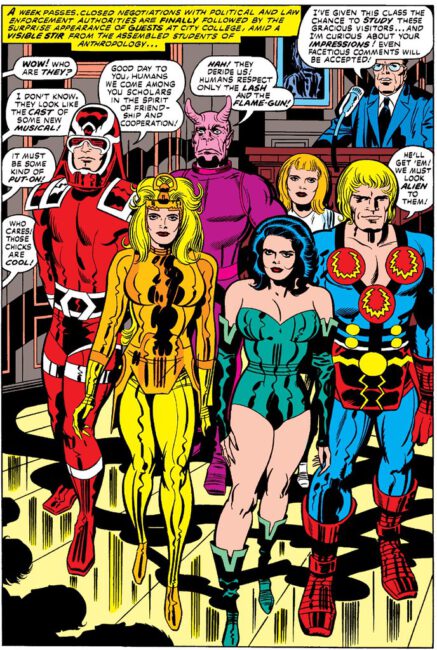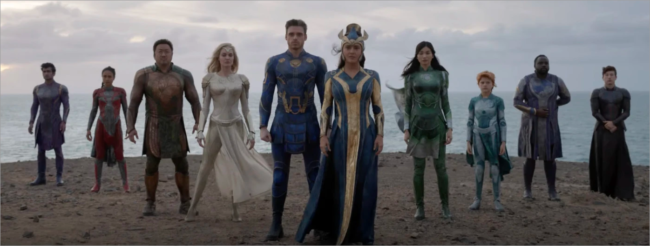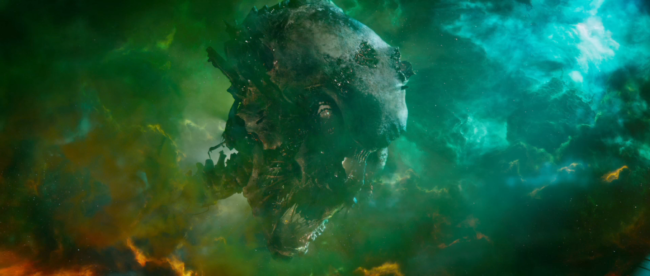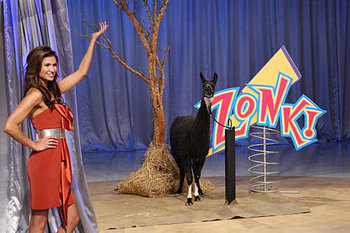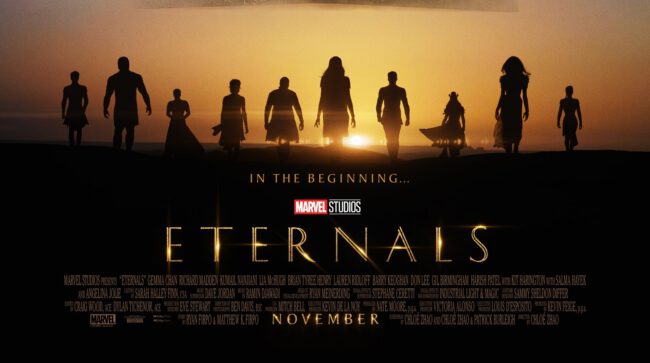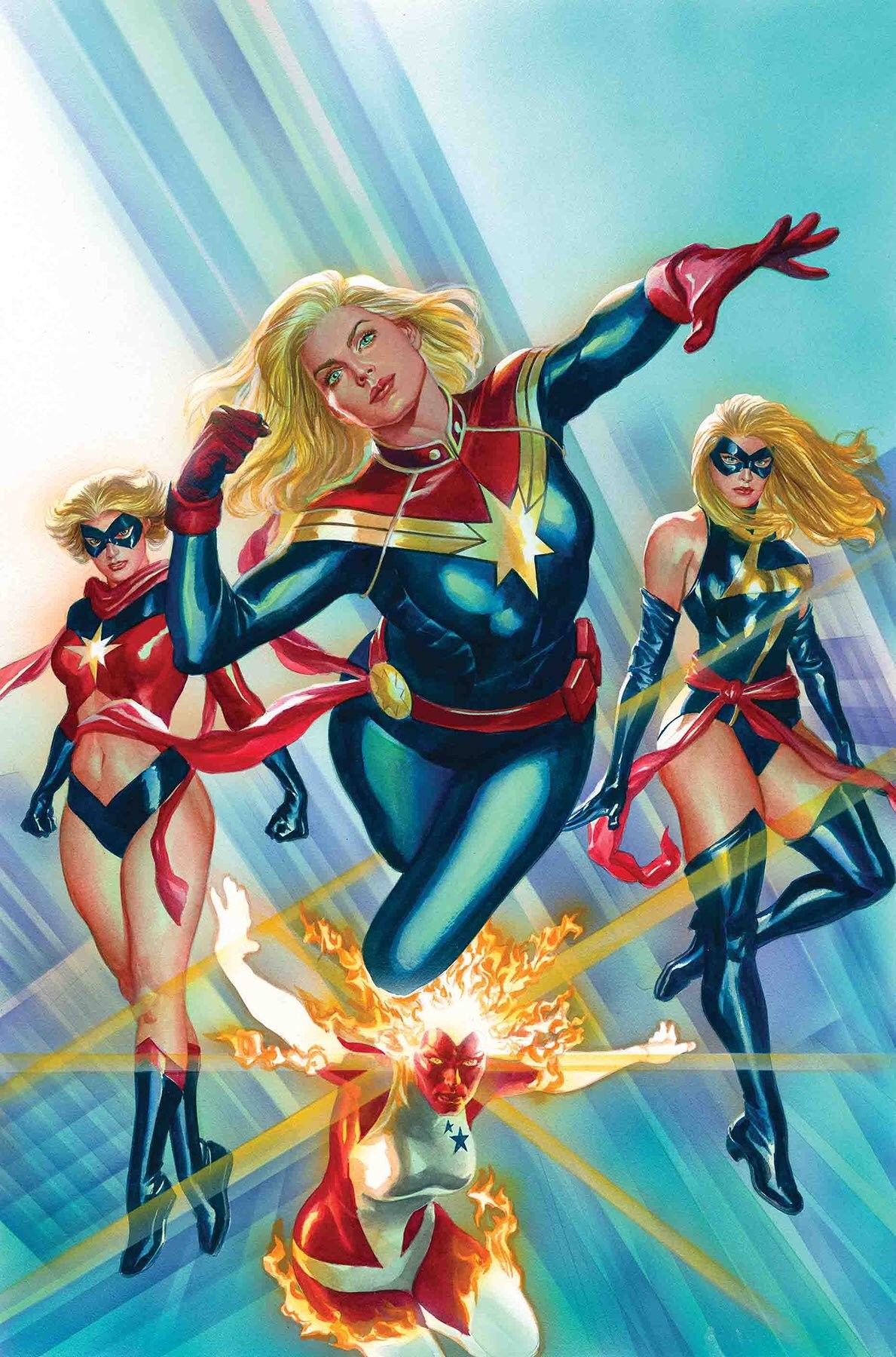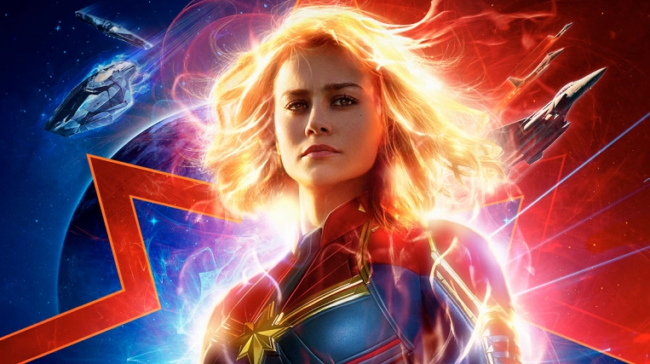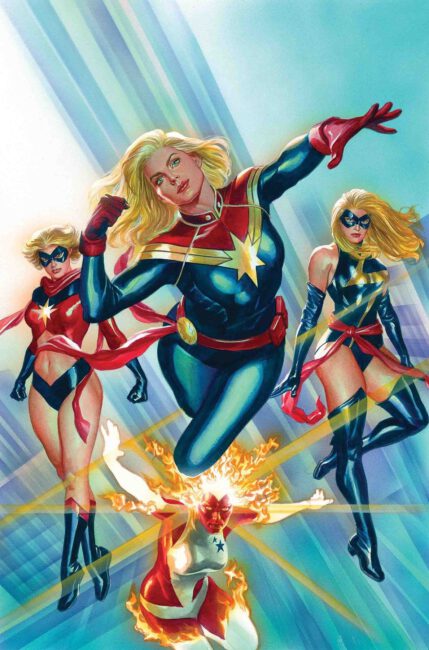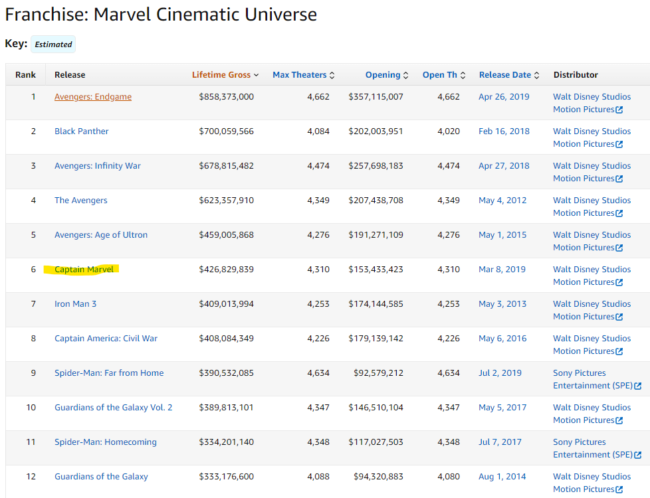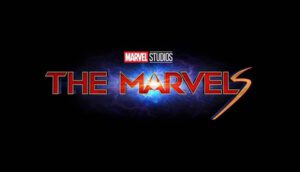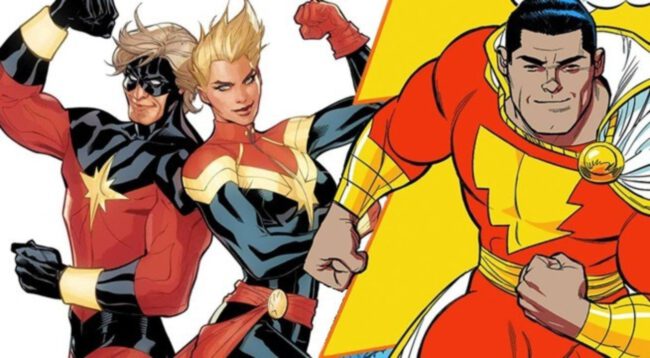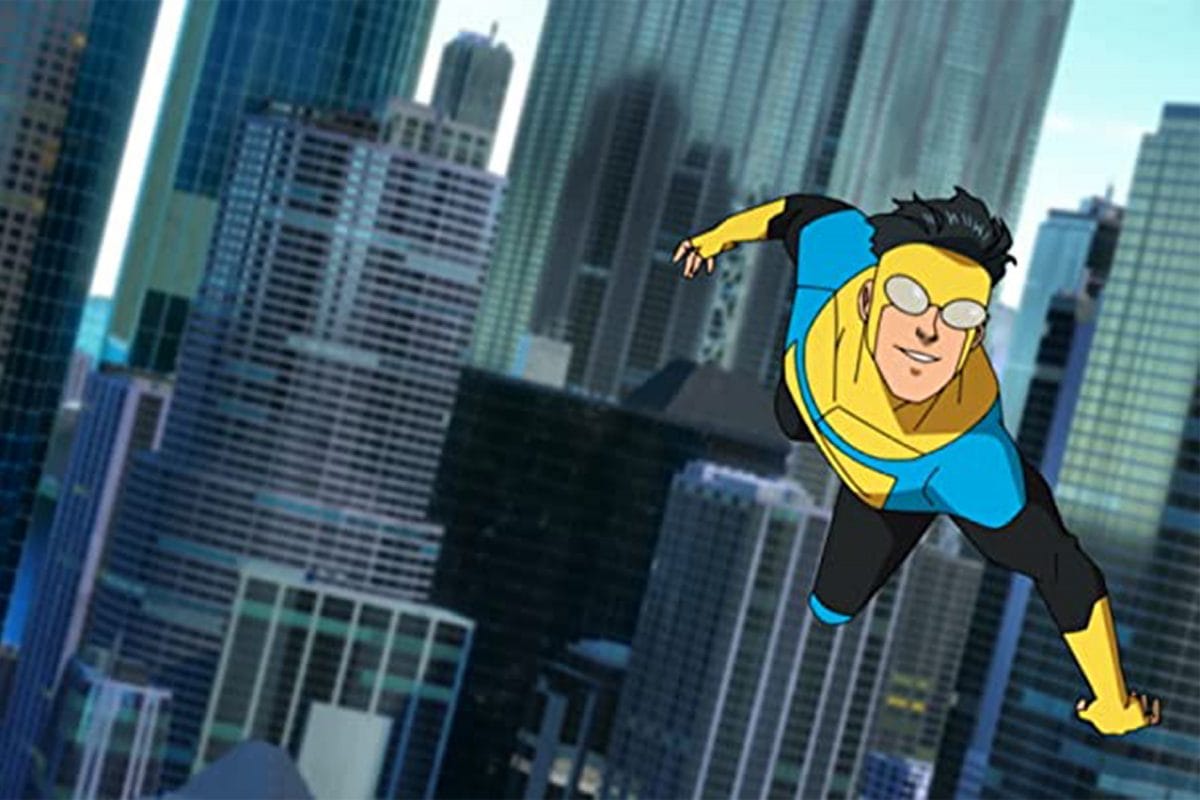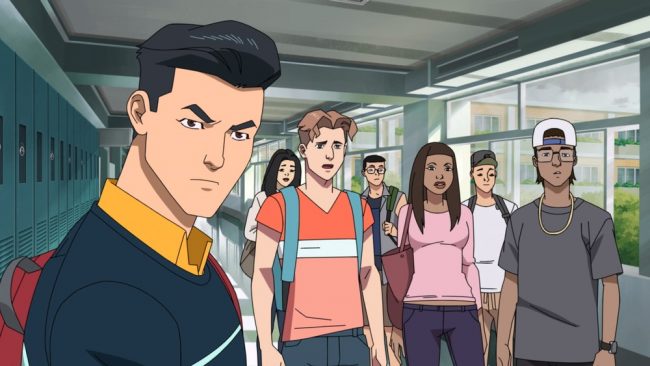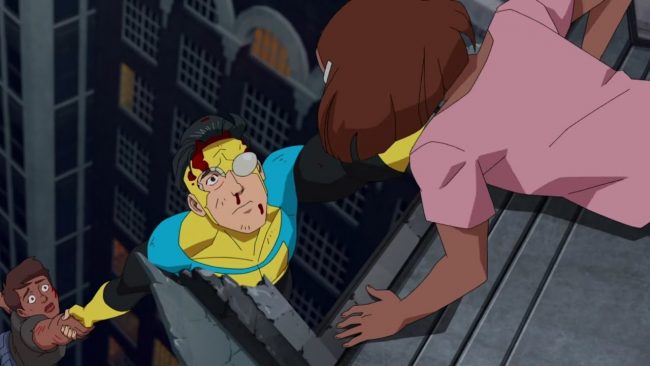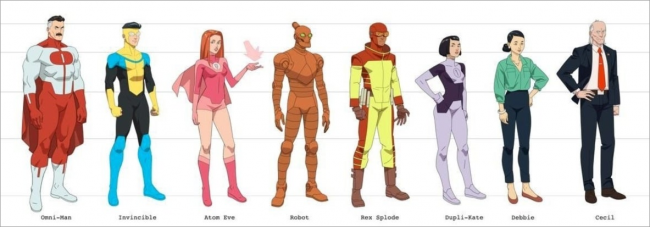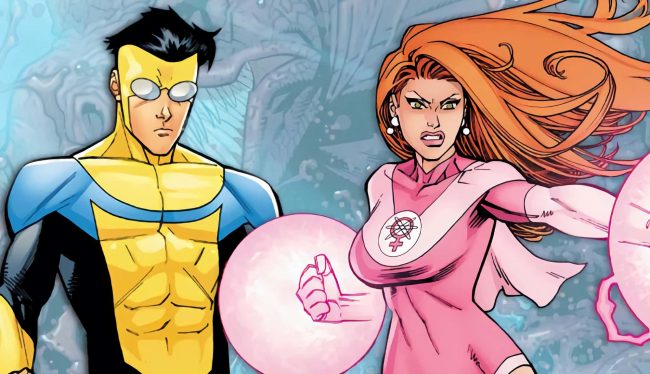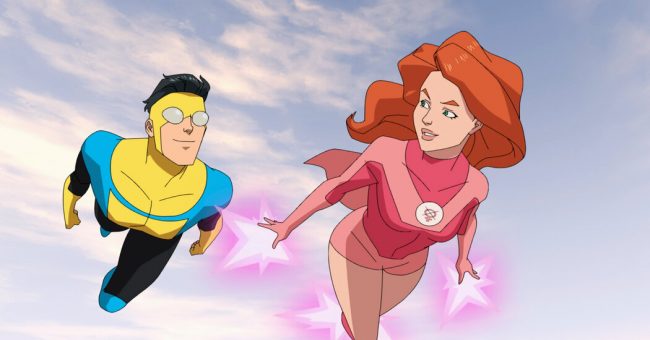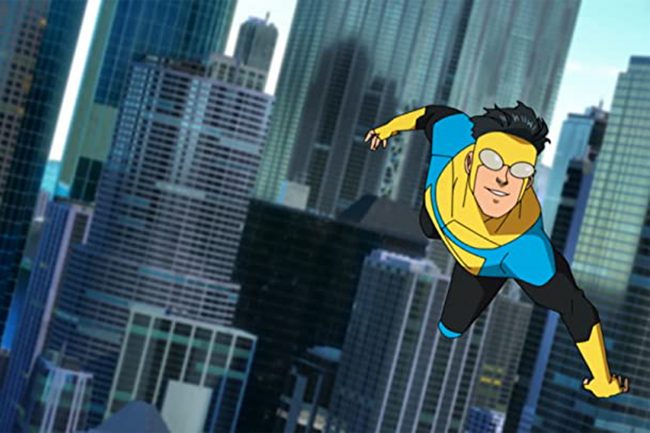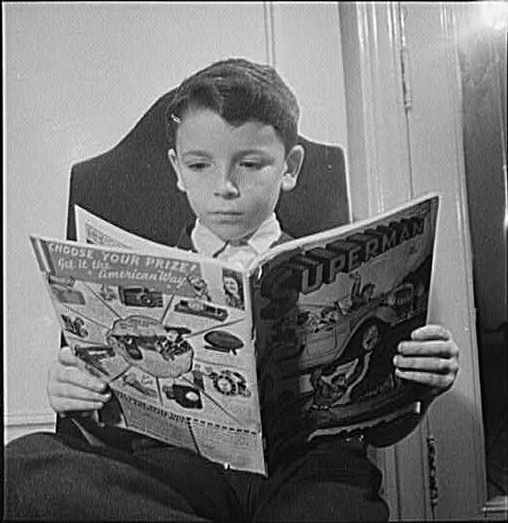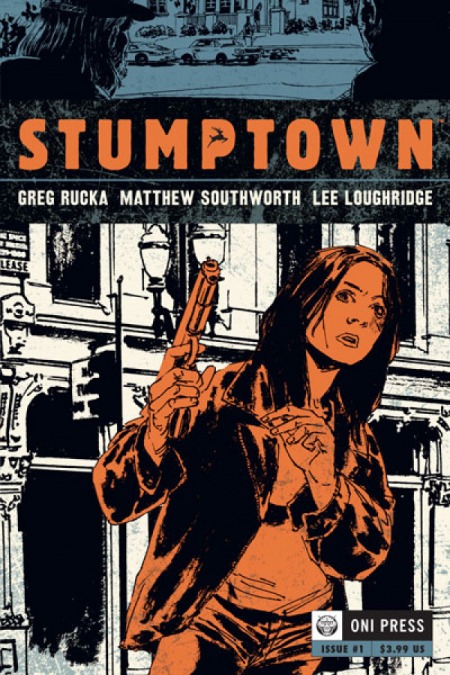(NO SPOILERS)
 Fantastic Four: First Steps is just about everything I could have hoped for from an FF movie. I am an admitted soft touch for super-hero flicks, but this is one of the first such films in a long time (if we exclude the equally-but-differently excellent “Superman”) where my arguments don’t have a lot of, “Yeah, that part was weak, but it was more than made up for by this part that I thought was spiffy.”
Fantastic Four: First Steps is just about everything I could have hoped for from an FF movie. I am an admitted soft touch for super-hero flicks, but this is one of the first such films in a long time (if we exclude the equally-but-differently excellent “Superman”) where my arguments don’t have a lot of, “Yeah, that part was weak, but it was more than made up for by this part that I thought was spiffy.”
Story
Gotta start here first, because this movie excels in setting up the retro-future 60s comic book world of Earth 826 (which number has special meaning), and then keeps the plot running strong, fast, and in a reasonable (within comic book logic) direction.
 The setup is almost too much — too much fun and love with a world where the Jetsons was just a preview and the FF have been the world’s only super-heroes (and diplomats, and genius scientists, and space-faring celebrities, etc.) for four years. I wouldn’t cut out a minute of that, but it felt just on the edge of over-indulgent.
The setup is almost too much — too much fun and love with a world where the Jetsons was just a preview and the FF have been the world’s only super-heroes (and diplomats, and genius scientists, and space-faring celebrities, etc.) for four years. I wouldn’t cut out a minute of that, but it felt just on the edge of over-indulgent.
But it’s all (mostly) for setting up how things are going to work, what the logical premises of this world are.
When a run time for FF:FS was announced, it was one of the longest Marvel movies to date, but when the final run time was given, it turned out to be one of the shortest (at 1:55). I will be curious to learn what got cut to make it that, but, as someone who almost always wants more, I felt like this movie was just the right length. Bravo that.
It’s also worth noting that, save for an end-credits scene (there’s only one, mid-credits), this movie is completely separate from the MCU. And that works, too, especially knowing that, sooner or later, there will be a significant cross-over.
That brings up a a side question of tone. My family pointed out their major critique of the MCU for some years has been too much throwing around of one action scene after another, many of them doing less to advance the plot than to satisfy some suit’s need for MOAR ACTION. FF:FS has action scenes, sure, but it also has a lot of talky scenes, and emotional scenes, and fun scenes, and more talky scenes. The movie, ultimately is less about the action, or even the BBEG threat, but about this family and the things they do together (which do include action against the BBEG, but aren’t limited to that).
It will be interesting to see how those somewhat opposing creative currents ultimately mix.
Acting
 Being a movie about people and relationships, the quality of the actors (and the writing and directing done for them) becomes more important. And, frankly, the acting here is a good tick above competent, and the writing and direction support that. This could have easily turned into “The Reed & Sue Show,” or gotten side-tracked on one character’s problems, but everyone gets multiple moments to shine (and do so).
Being a movie about people and relationships, the quality of the actors (and the writing and directing done for them) becomes more important. And, frankly, the acting here is a good tick above competent, and the writing and direction support that. This could have easily turned into “The Reed & Sue Show,” or gotten side-tracked on one character’s problems, but everyone gets multiple moments to shine (and do so).
Vanessa Kirby plays a passionate and powerful Sue Storm. Pedro Pascal’s Reed Richards is intellectually brilliant and emotionally troubled. Joseph Quinn gives us a irrepressible (but not annoyingly so) Johnny Storm. And Ebon Moss-Bachrach, even working through a CG character on-screen, plays a compassionate and sympathetic Ben Grimm.
And I use the characters’ names deliberately here, as the movie rarely refers to any of the Four by their “super-hero” names (only Reed’s “Mr. Fantastic” gets a prominent call-out). That further helps ground the movie, making it about people, not about masked monikers.
It’s also worth a note, both story and acting-wise, that while everything isn’t sweetness and light and familial love for the entire film, the movie never takes a serious dip into what could be very dark aspects for all these creatures. There’s plenty of emotion, but little trauma / body-horror / emotional fracturing plot elements that have popped up in the FF comics over the decades, and that’s quite appropriate for this film. This is a film about light in the face of darkness, not the darkness itself.
Most of the other actors involved have substantially more bit parts, with the exception of Julia Garner’s Shalla-Bal who, between run time and silvery CGI, still can’t give us more than the bare bones of her character. But everyone (including some lovely cameos) does a fine job supporting our core cast. As they should.
Production
 In terms of setting, the movie is beautiful, and evocative of Kirbyesque mid-60s weirdness, googie architecture gone wild, and a world that (super-villains aside) it would be a blast to live in. All this is rendered lovingly, with a ton of practical effects blurring seamlessly with the CG. The movie just looks gorgeous.
In terms of setting, the movie is beautiful, and evocative of Kirbyesque mid-60s weirdness, googie architecture gone wild, and a world that (super-villains aside) it would be a blast to live in. All this is rendered lovingly, with a ton of practical effects blurring seamlessly with the CG. The movie just looks gorgeous.
A critical part of that texture is music, and Michael Giacchino gives us, to nobody’s surprise, an amazing soundtrack, combining the period feel with action with just, well, a fantastic vibe. Delightful.
For the specific special effects, they are very, very nice. Reed realistically stretches (and uses that stretching). Sue’s invisibility and force fields are nicely done. Johnny’s flame-on effect looks really good. And Ben himself looks and acts and moves quite well and believably. Galactus himself looks and moves just right. And the Silver Surfer’s silver surfing is exquisite.
Surely there was something you didn’t like, Dave!
If I have to pick nits, I think the Silver Surfer story line needed at least one more scene. Galactus is a bit too much of a dick. And, no, Ben, the beard looks stupid.
Net-Net
Having Superman and Fantastic Four: First Steps come out within weeks of each other is an embarrassment of riches. Both feel fresh, hopeful, and encouraging for both their universes and for us comic book movie fans.
 There’s a lot the two films have in common — trying to start off already-known characters as unencumbered by the past as possible being number one, and the decision to start in media res of their careers rather than obsess on origin stories is number two. Maybe number three would be dealing with the fickleness of adoring fans (and, to go with them, vicious critics) is. And feebleminded accusations of “wokeness” are, sadly but inevitably number four.
There’s a lot the two films have in common — trying to start off already-known characters as unencumbered by the past as possible being number one, and the decision to start in media res of their careers rather than obsess on origin stories is number two. Maybe number three would be dealing with the fickleness of adoring fans (and, to go with them, vicious critics) is. And feebleminded accusations of “wokeness” are, sadly but inevitably number four.
But there are differences, too. Superman focuses on just one guy (with personal relationships, to be sure) trying to make it through; FF:FS focuses on family and how they stand together to make it through. Superman‘s tale is more grounded on Earth, so to speak, despite its protagonist’s extraterrestrial origin; its villain is a narcissistic and xenophobic billionaire genius whose designs on power aren’t laudable, but are pretty likely to leave most of Earth’s population alive and possibly even (if he can focus on doing positive things) better off. The FF are instead dealing with a truly cosmic threat, even when that threat touches ground in New York City, and the stakes for them are huge, personally and planetarially.
Regardless, both are solid entertainment. I recommend both films whole-heartedly. Hopefully both are signs of good things to come.
Do you want to know more?






